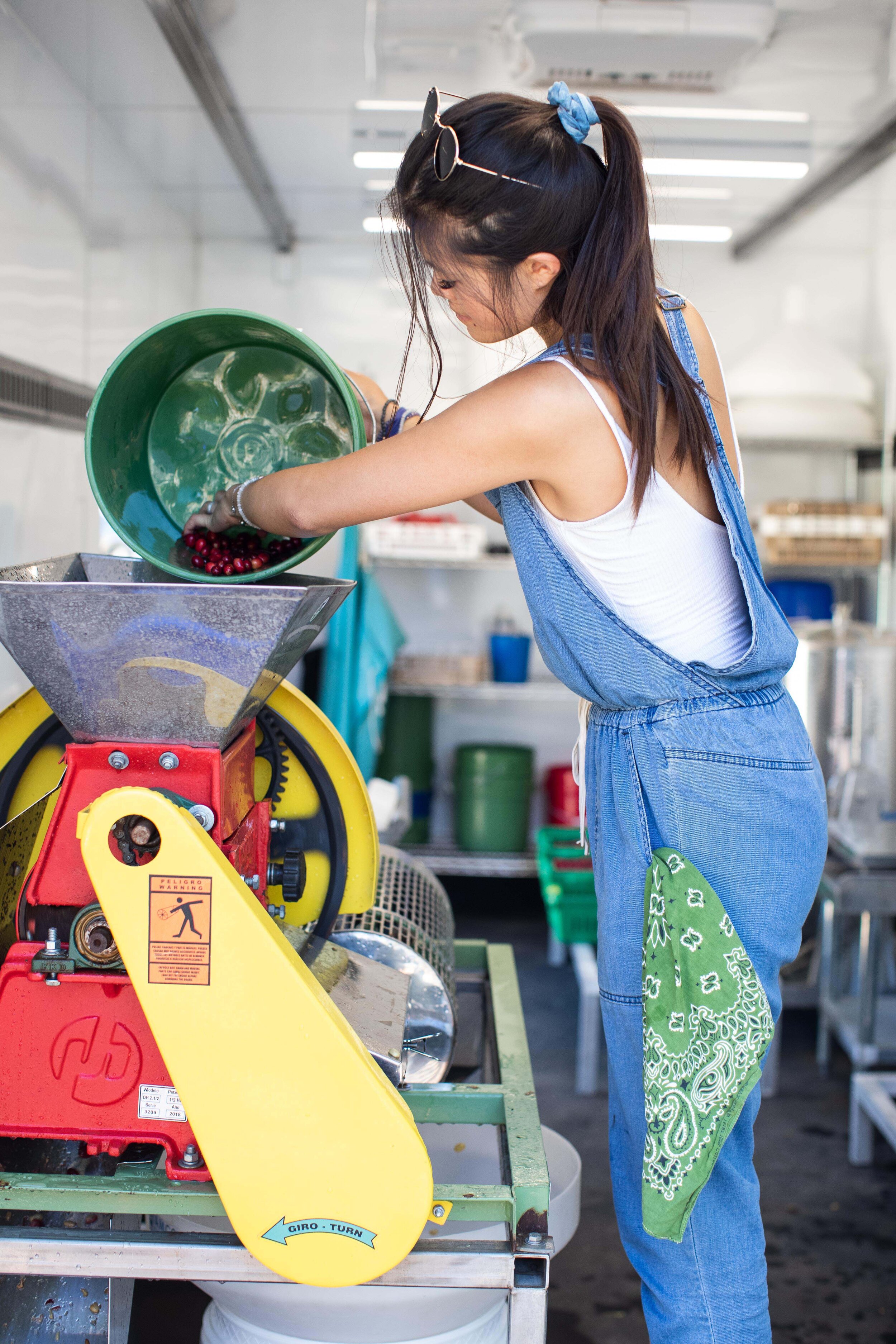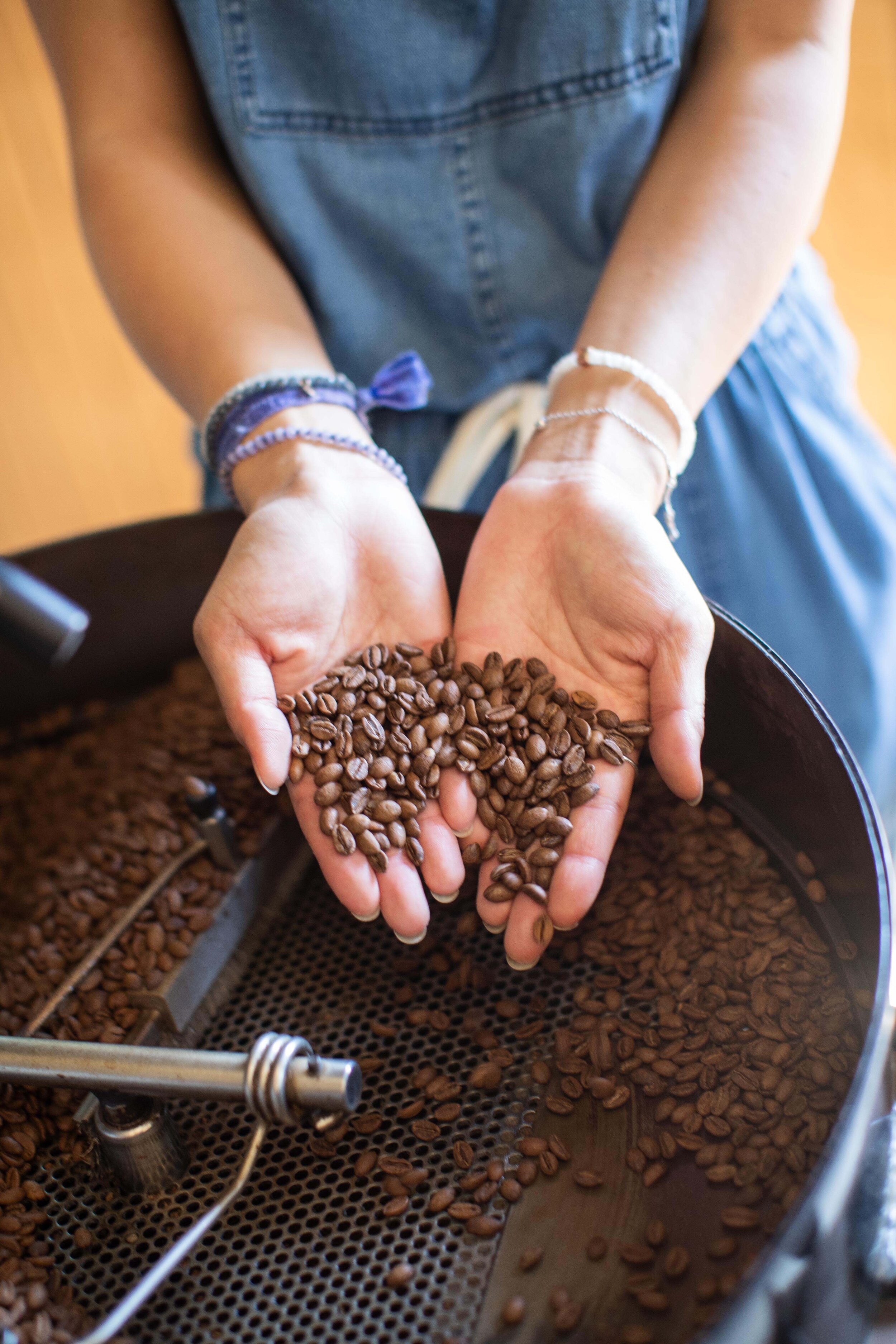Fresh Grounds
Just north of Santa Barbara, where the ocean mist rises above the sloping terrain of the Goleta foothills, a revolution is brewing
Written by Ninette Paloma | Photographs by Michael Haber
At 5:45 a.m., Jay Ruskey pulls himself out of bed, stretches, and sets off to make the first of what will be many cups of coffee. He warms the pot, rinses the filter, and slowly and methodically pours water over medium-coarse Good Land Organics Geisha (one of several possible choices), carefully inspecting his CO2 bloom. The ensuing cup—with its heady aroma of chocolate, floral, jasmine, red apple, rose, and sweet vanilla—is the preternatural result of Southern California’s latitude and climate, and a liquid testament to Ruskey’s unyielding resolve.
“So many of us enjoy the ritual of coffee but we don’t understand how much work goes behind developing it,” says Ruskey, founder of FRINJ coffee and owner of the first commercial coffee farm in California. “The planting, harvesting, roasting, and brewing are all part of a complimentary journey that’s on par with the wine experience.”
Two decades ago, Ruskey’s idea to incorporate several rows of coffee plants into his avocado orchard was met with skepticism by industry experts who insisted California lacked the characteristics needed to foster a notoriously delicate crop. But Ruskey was undeterred. “The truth is, I didn’t take them or anything too seriously,” he recalls. “At that point in my life, I was young and ambitious and just trying to find crops to make a living.”
Through years of exploration and error on his family’s Good Land Organics farm property—along with a savvy collaboration with leading researchers at UC Davis—Ruskey finally developed a replicable farming system that would consistently yield a high-quality crop, and suddenly the idea of subtropical coffee production didn’t seem so far-fetched after all.
“Growing coffee in California is different in both how the coffee is produced and how it is experienced,” emphasizes Ruskey. “We have a cross-section of climate with an ocean and mountain buffer that’s always lent itself to agricultural diversity. Throw in 14 hours of sunlight and 20 percent humidity that invigorates sweet cherries, and that’s what we call the California advantage.”
Aficionados are dubbing it the “California Coffee Experience,” and consumers from Japan to the U.K. want in on it, too. “It’s an honor to be recognized for the craftsmanship,” Ruskey says with a smile.
Today, FRINJ is initiating a new chapter in the state’s agriculture, in which regenerative farming and biodiversity are at the center of a sustainable approach to land stewardship. “The new farmer is looking for a lifestyle they can be proud of,” says Ruskey. “Their farms may be smaller, but they’re looking to improve on their property using conscious methods that are good for the land and people.” Making good on that philosophy, Ruskey has also pledged to do right by farmers who’ve historically seen meager returns on their labor-intensive crops—generally hovering around the 2 to 5 percent mark. By stark contrast, FRINJ farmers walk away with a sizeable 60 percent return, signaling a firm and clear acknowledgment that their time and efforts are valued.
“It’s completely upside down right now,” says Ruskey, “and I want to be a disrupter. This is about farmers caring for each other and looking after the land together.”
On a late spring afternoon, the farm is buzzing with harvest activity, and Tejon the family dog is making his rounds, sniffing at crates and greeting the crew as they gather in the main house for an informal tasting. FRINJ’s San Franciscan bean roaster is whirring in the corner, and the faint smell of lightly browned butter begins to fill the sunlit shed. “We’re not a dark roasting coffee,” Ruskey explains. “We don’t want to narrow the flavor profile.” Like an expert chemist, Ruskey begins gliding around the tasting bar, setting out small ceramic cups and carefully monitoring the water. He pours samples of one of his newest varietals, part of a new breeding program that develops FRINJ-produced hybrids. The floral notes are unmistakable, with a delicate nuttiness and a sweet, rounded finish. It is undeniably the best cup of coffee I’ve ever tasted, and everyone around me nods in agreement.
“I think our quality is at world standards,” Ruskey says with a proud smile. “It’s really up to our California farmers now, and we’re pushing the limits and going for it.” •




